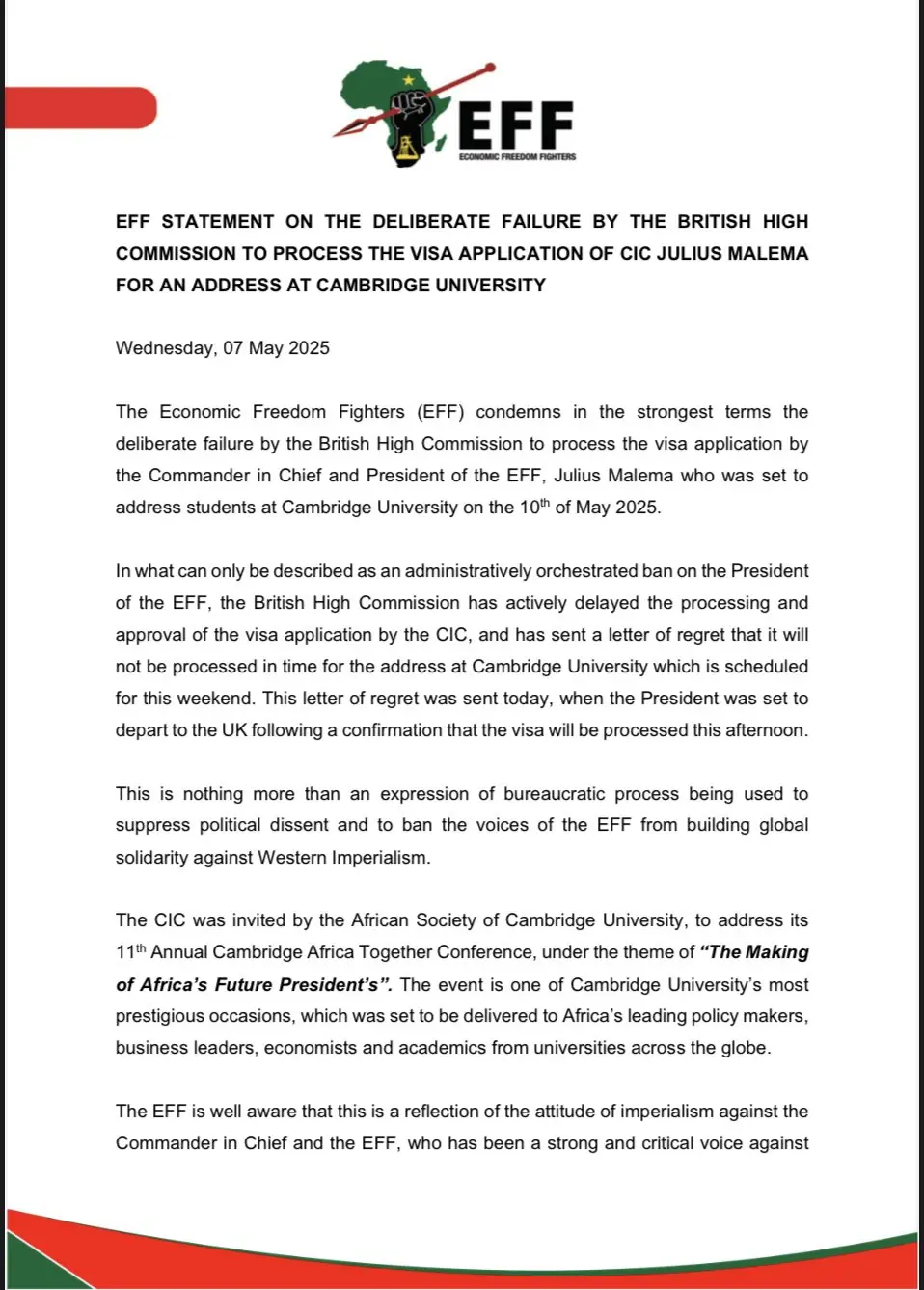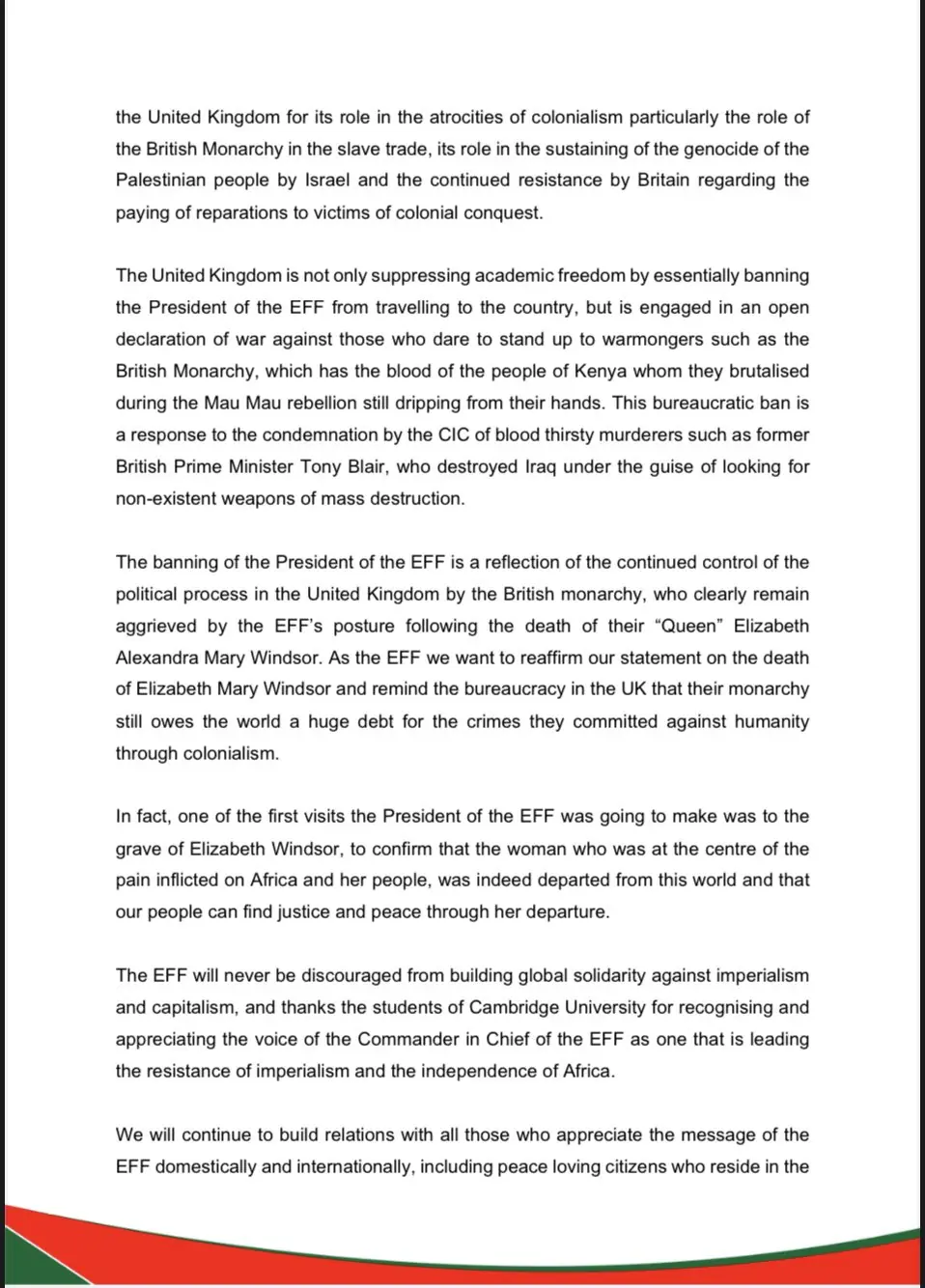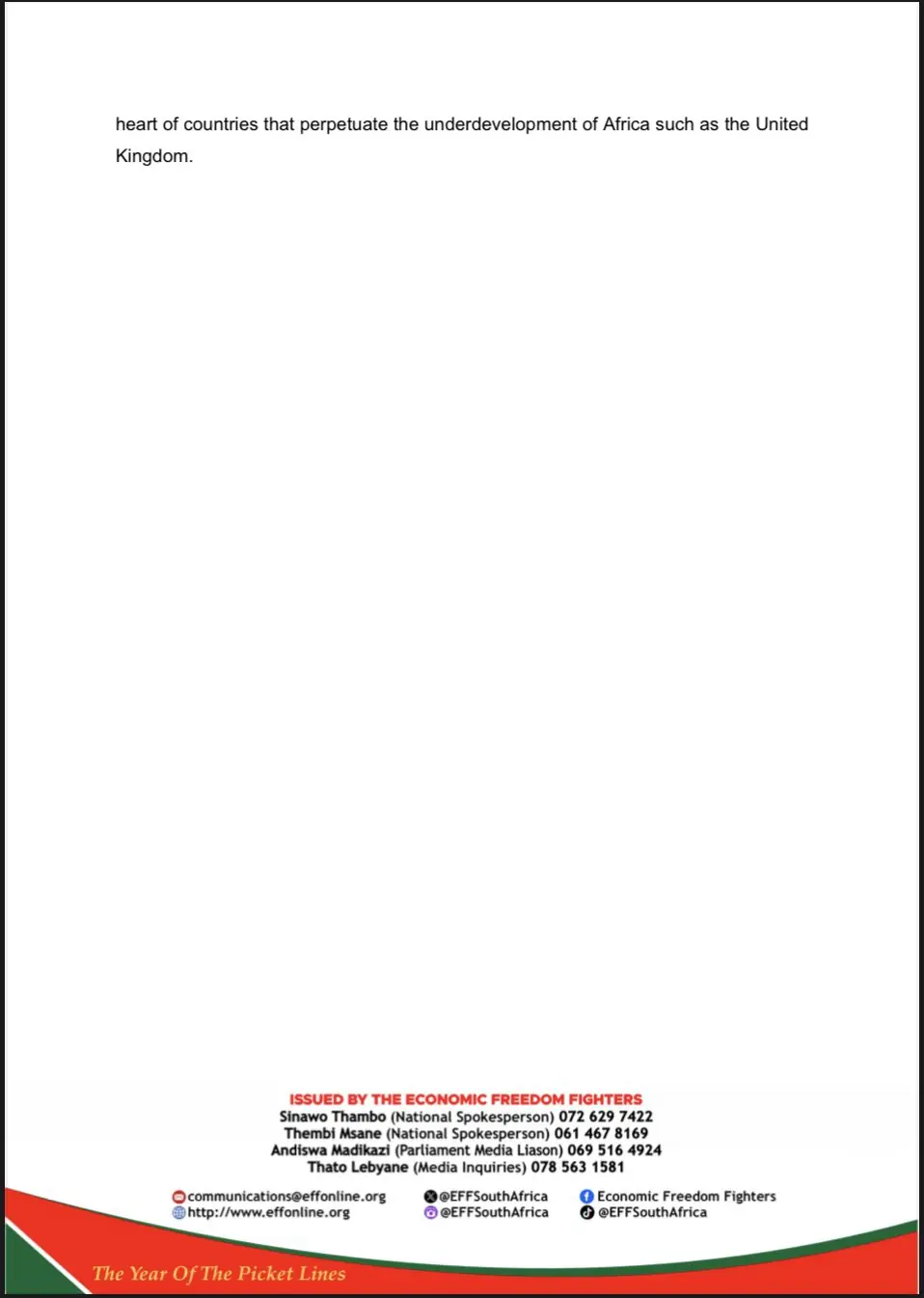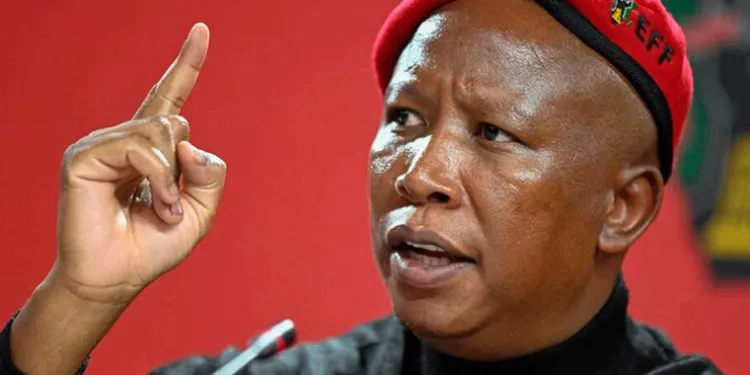Julius Malema, the leader of South Africa’s Economic Freedom Fighters (EFF), has been denied a UK visa. The denial was confirmed just hours before he was scheduled to travel to Cambridge University to speak at a major academic conference. The party has described the decision as a “deliberate failure” by the British High Commission and an act of political censorship.
“We are currently at the OR airport, as we were promised that everything would be sorted by 15:30. Instead, we received a regret letter just four hours before our departure,” Malema posted on X (formerly Twitter). “This is unacceptable and spineless.”
EFF Accuses UK of Orchestrated Ban
In a formal statement released Wednesday, the EFF strongly condemned what it called “an administratively orchestrated ban” against Malema. According to the party, British authorities had assured them that the visa would be processed in time. However, they then reverse course at the last moment.
“The British High Commission has actively delayed the processing and approval of the visa… and has sent a letter of regret that it will not be processed in time for the address at Cambridge University,” the statement reads.
The EFF contends that the visa denial was not a bureaucratic mishap. They say it is rather a calculated effort to block a critical political voice. The party accused the UK of suppressing dissent “to ban the voices of the EFF from building global solidarity against Western Imperialism.”
Malema Was to Speak at Africa-Focused Conference
Malema had been invited by the African Society of Cambridge University to speak at the 11th Annual Cambridge Africa Together Conference, under the theme: “The Making of Africa’s Future Presidents.”
Described by the EFF as one of Cambridge’s most prestigious events, the conference aims to convene “Africa’s leading policy makers, business leaders, economists and academics from universities across the globe.”



Historic and Political Allegations Raised
The EFF statement also connects the visa issue to Britain’s colonial history. It cites the UK’s alleged refusal to acknowledge its colonial crimes and criticizes the British monarchy’s role in historic injustices, including the Mau Mau rebellion in Kenya and the transatlantic slave trade.
“The United Kingdom is not only suppressing academic freedom by essentially banning the president of the EFF… but is engaged in an open declaration of war against those who dare to stand up to warmongers such as the British monarchy,” the statement claims.
The EFF reiterated its condemnation of former UK Prime Minister Tony Blair for the 2003 Iraq War. They also emphasised the party’s belief that the UK continues to evade accountability for its colonial past.
Public Reaction: Divided Opinions
The visa denial has generated a wave of reactions online. Among those supporting the UK’s decision is AfriForum CEO Kallie Kriel, who tweeted:
“Great news! This is only the beginning… International intervention is now necessary to ensure that Malema cannot act with impunity.”
AfriForum has long campaigned against Malema’s use of the controversial “Kill the Boer” chant,. They accuse him of inciting violence against South African farmers and Afrikaners.
EFF Pledges to Persist
Despite the setback, the EFF maintains it will continue to advocate globally. “We will continue to build relations with all those who appreciate the message of the EFF domestically and internationally,” the party concluded.
Malema’s intended visit to the UK included not only the Cambridge event . Also, according to the EFF, it included a visit to the grave of the late Queen Elizabeth II. They say it was to “confirm that the woman who was at the centre of the pain inflicted on Africa and her people, was indeed departed from this world.”



